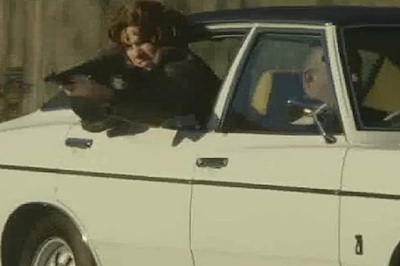
A BBC Panorama documentary in which former plain-clothes British soldiers admitted carrying out undercover gun attacks in nationalist west Belfast has led to a public outcry and demands for an inquiry.
The details revealed in the broadcast have recalled traumatic and appalling events which have always been refuted by the British authorities.
Dozens of innocent civilians were injured or killed in attacks carried out by the ‘Military Reaction Force’ (MRF), usually in machine-gun blasts from an unmarked vehicle, and always the full sanction and support of their British military bosses.
Reconstructions of events dating from 1971 onwards have hone a new light on the actions of the secretive unit. The BBC’s John Ware interviewed members of the MRF, who wore disguise but still spoke of their pride in their murderous campaign.
The documentary recounted incidents when machine gun fire raked through knots of people standing on street corners or heading home to the pub. Others were chased through streets.
Those targeted were often standing in the vicinity of road barricades erected by nationalist communities for their own safety 40 years ago. All of the victims were forensically tested by the then RUC, but none were found to have been in contact with firearms. No evidence was ever presented that those who were shot were anything other than innocent civilians.
It was argued in the broadcast that the unit was a prototype counter-insurgency operation based on experiences in colonial conflicts, and that military regulations or civil laws “did not apply”.
The unit included 40 hand-picked men from across the British Army who always wore plain clothes. When the men arrived at the specialised enclosure in Palace Barracks, County Down, which still operates today, the men dispensed with ranks, identification tags and surnames.
Some soldiers told the broadcaster they would drive by the barricades and open fire, even if they did not see anybody brandishing a gun.
One said anyone standing in the vicinity of a barricade was potentially an armed member of the IRA, and therefore a justifiable target. Another said it was part of his mission to “draw out” the IRA in west Belfast. “If they needed shooting they’d be shot,” he said.
Most admitted that they would shoot unarmed targets. One said: “We were not there to act like an Army unit, we were there to act like a terror group”.
MRF member Simon Cursey - not his real name - told a newspaper at the weekend that originally they were told to shoot at anyone carrying a weapon, but that the rules changed so that “groups manning barricades or vigilantes patrolling late at night” were targets.
He admitted involvement in the attack in which father-of-six Patrick McVeigh died. That attack, and another six weeks later, were both carried out from an unmarked car using a privately-owned Thompson submachine gun.
Key information was withheld from courts in the north of Ireland about this unit’s activities, according to Panorama. Mr McVeigh’s daughter Patricia said of the broadcast: “We want the truth. We don’t want to stop until we get the truth.”
The MRF was ultimately replaced by the Force Research Unit, an equally clandestine division of the British Army which operated in concert with loyalist paramilitary death squads.
Sinn Fein leader Gerry Adams said the programme had shed light on one aspect of Britain’s ‘Dirty War’ in Ireland, and said victims of the MRF would be “disturbed” by the new information.
He called on the Dublin government to press the British to establish “a truth recovery process that can provide support and closure for survivors”.
“Sinn Fein has proposed that there be an international, independent truth recovery process,” he said. “Others have different ideas and that is fair enough, but we need to take this opportunity to move the process forward in a way that looks after the victims but also builds the future for the survivors.”
![[Irish Republican News]](https://republican-news.org/graphics/title_gifs/rn.gif)
![[Irish Republican News]](https://republican-news.org/graphics/title_gifs/harp.gif)

